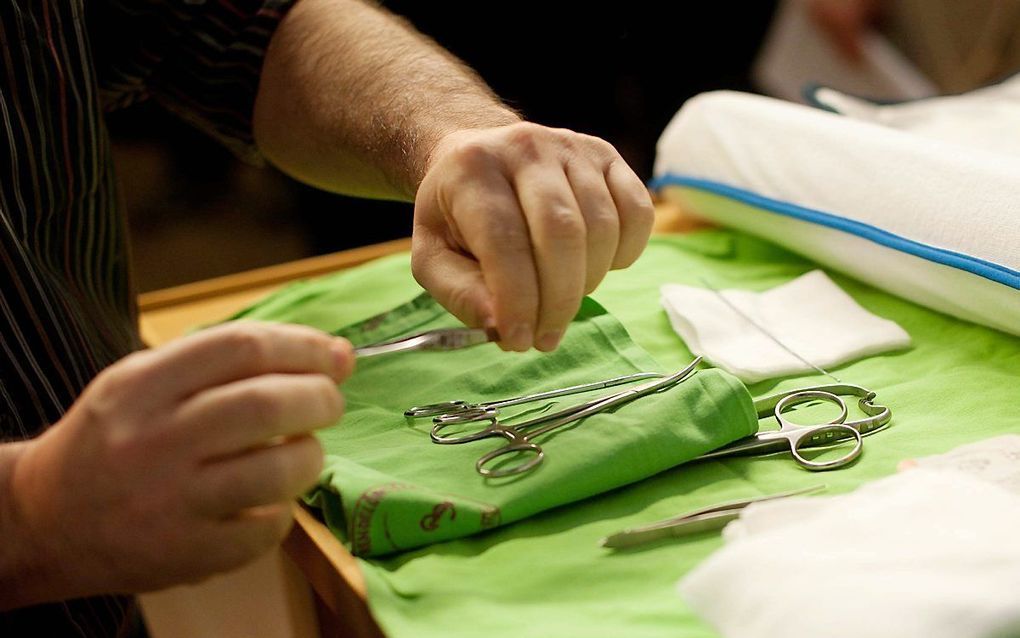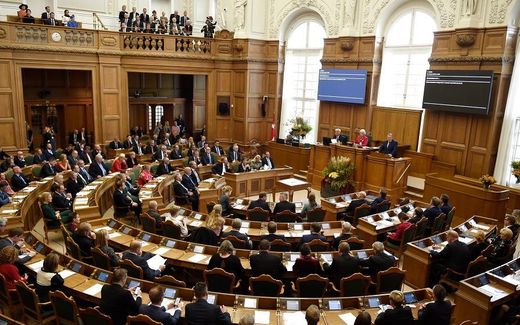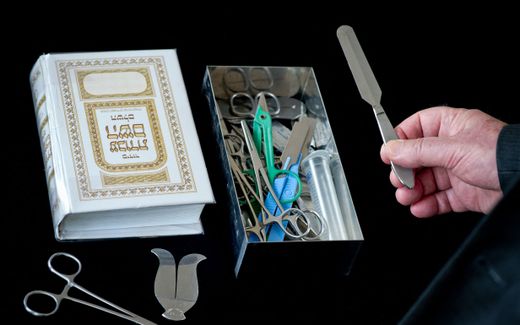Danish city council wants to warn against circumcision

Photo EPA, Bea Kallos
Northern Europe
The Danish municipality of Ballerup wants to warn parents about the possible health risks that may be associated with the circumcision of boys. While experts are critical of the decision, city council politicians across the country are calling for similar initiatives.
After several years of intense debate, the Danish parliament decided last year not to ban the boys’ circumcision. It seems that the debate is moving toward the local municipalities now.
On Monday, November 29th, the City Council of the Copenhagen suburban municipality decided to enshrine in the current health policy that the municipality will “make an effort to inform current and future parents about the risks that may be involved in circumcision”. Furthermore, “based on the principle of ‘the child’s right to decide over their own body”, the municipality will encourage parents to postpone religiously or culturally justified circumcision or other sex surgery that is not medically justified until the child itself can take a position on this.”
This writes the Danish Christian daily Kristeligt Dagblad.
Informed
According to Social Democrat Lolan Marianne Ottesen, who is the chair of the Social and Health Committee and 1st Deputy Mayor, parents must be informed as early as possible about the possible consequences of circumcision. “If you want to let your child be circumcised for cultural or religious reasons, then it must be done on an informed basis. We want to dissuade parents from having their children circumcised. However, if you still choose to do so, then, of course, it must be done by an authorised doctor”, says Ottesen to the Kristeligt Dagblad.
Although the decision does not forbid circumcision, people from the Jewish community are not happy about the decision. The Jewish chairman Henri Goldstein, himself being a doctor, is critical: “How do you want to inform parents without identifying them to be Muslims or Jews? That would be ethnic profiling and stigmatization from the municipal side.”
Goldstein believes that the new health policy could lead to more illegal circumcisions. “I fear that it will create greater inequality in health because Jewish and Muslim parents will probably opt out of visiting the health nurse if a politicizing moral sermon is included. This initiative is exactly what you need to do if you want more shady circumcisions and opt-out of visits from the health nurse”, Goldstein says in Kristeligt Dagblad.
Brian Arly Jacobsen, who researches the interplay between religion and local politics, agrees with Goldstein. According to Jacobsen, there is a risk of putting citizens and health professionals in “an exposed situation”. “Jewish, Muslim or other citizens who use circumcision are forced to choose between listening to health professionals on the one hand and having to choose their religious or traditional identity on the other. It can very easily result in confrontations.”
The Danish Department of Human Rights sees problems in the proposal as well. “If you talk exclusively about the subject based on ‘the child’s right to his own body’ - as Ballerup municipality proposes - one overlooks the right to freedom of religion and belief, including both the parents’ right to raise their child in their faith”, senior researcher Marie Juul Petersen warns. She thinks these developments are “problematic”.
Child-friendly
Although there are critical voices against the proposal, the idea is getting traction among city council politicians across the country. Lars Lindskov, who has been elected for the Conservatives in Roskilde, has already spoken to other parties to see whether he has support for a similar proposal. “I am opposed to circumcision, so I think it is a perfect initiative. And it’s not because I’m against Muslims or Jews, but because I’m against mutilating children. After all, no one is discussing whether we should circumcise girls. Of course, we do not have to. So how can we agree that it’s okay to cut boys?” As far as Lindskov knows, all that is missing is a green light from the Liberal Party. That party is currently considering its position, writes Kristeligt Dagblad.
In the municipality of Holstebro, a newly elected candidate is also positive about the Ballerup proposal. “I will take it to the city council, and we will see if Holstebro is as child-friendly as Ballerup”, Lone Kjær Hein wrote on Facebook. Hein has been elected as a city council politician for Danish Social Liberal Party. She currently has not yet started her political work.
Debate
The debate about circumcision is not new in Denmark. In May, the Danish parliament rejected a proposal to make boys’ circumcision more difficult. All the centre parties in the Danish Folketing voted against the age limit of 18 years for circumcision. The vote resulted from a long process that started with a citizens’ initiative in 2018.
If the Folketing had decided on a de facto ban, Denmark would have been the first country in the world to do so. In 2018, Iceland was very far in forbidding, but after pressure from the USA and Israel, the country decided to put the legislation on hold. Germany made a special law for circumcision in 2012 after a judge decided that it was illegal.
With 6,000-7,000 members, the Jewish community in Denmark is not very big. Only several dozen circumcisions are done each year for Jewish people. Most of the 1,000-2,000 circumcisions in the country are done for the 250,000 strong Muslims community.
There is no scientific consensus on the risk of circumcision. The World Health Organisation even recommends it in certain parts of Africa to prevent HIV.
Related Articles






